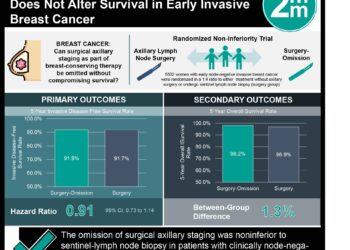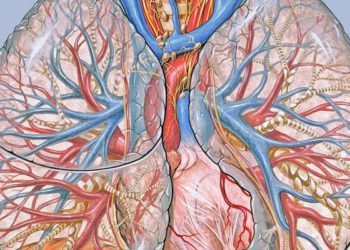Computed Tomography coronary calcium scores may predict risk of cardiovascular events in cancer patients
1. Despite lower prevalence of traditional cardiovascular risk factors, cancer patients were observed to have similar cardiovascular disease (CVD) events ot non-cancer counterparts.
2. Coronary artery calcium score (CACS) were well correlated with CVD risk in cancer patients suggesting a potential role as a targeted screening tool.
Evidence Level Rating: 2 (Good)
To date, cancer and cardiovascular disease (CVD) remain leading causes of mortality and morbidity worldwide. Recently, interaction between these two diseases have increasingly been recognized, as oncology patients face increased CVD risk even when lacking traditional risk factors. Less known however, is the efficacy of risk stratification scores such as CACS for assessing CVD risk and atherosclerosis in cancer patients. In this retrospective cohort study spanning five years, data from 10,742 patients, including 703 cancer (C) and 703 age- and sex-matched non-cancer (NC) individuals was utilized to fill this gap in literature. Patients had CACS scores, demographic data, and cardiovascular events investigated in the study. Despite lower prevalence of traditional risk factors, cancer patients exhibited comparable CVD events to non-cancer counterparts. CACS was higher in cancer patients, notably in the >400 category. Cancer patients with moderate (101–400) and extensive (>400) CACS showed increased prevalence of atherosclerotic burden, including peripheral arterial disease (PAD) and cerebrovascular accidents (CVA). Overall, the CACS scores along with the prevalence of CVD were similar when comparing cancer vs non-cancer patients involved in the cohort study. Study findings provide evidence that the use of traditional risk factors for CVD risk stratification of cancer patients. Instead, CACS may have a potential role as a targeted screening tool for cancer patients, and allow for early intervention.
Click to read the study in Cardiooncology
Image: PD
©2024 2 Minute Medicine, Inc. All rights reserved. No works may be reproduced without expressed written consent from 2 Minute Medicine, Inc. Inquire about licensing here. No article should be construed as medical advice and is not intended as such by the authors or by 2 Minute Medicine, Inc







